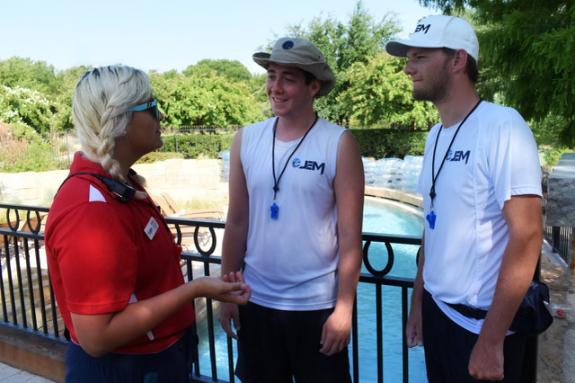
I was seventeen and the first job I held outside of babysitting was at a McDonald’s. I never thought I’d work in fast food, but I had a friend that worked there, and she said it was fun. I believed her, applied, and got the job with little thought about what I was taking on.
My first day I was filled with excitement, nerves, and uncertainty as I had no idea what was in store for me in that four-hour shift. I showed up, went through a basic orientation, and was put in charge of making fries…for a Saturday lunch rush. It was hectic! There were a ton of buttons, I was dropping baskets, filling fry boxes, and enduring the meanest manager in the store.
I spent the next few hours being shouted at about fries —“too much salt”, “not enough salt”, “not enough fries”, “fries aren’t done yet”, “too many in the box”, “not enough in the box”, and my favorite, “the fries are too hot”. By the end of my shift, I felt sick to my stomach from the smell of fries and I questioned what kind of friend I had. This wasn’t fun! It was hard work! After a few weeks, the job was more fun because I knew what I was doing. I worked there for about six months and I remember the first day the most vividly.
What did I take away from this job? The base for what has developed into my work ethic, and the ever so popular phrase to live and manage by, “if you have time to lean, you have time to clean.” This job demanded that you follow the rules and guidelines right down to the pickles. While I thought I had met the devil herself on my first day, she was enforcing and teaching me the standards of the job, which are worldwide.
How does this apply to my world today? I work with a lot of teenagers. Not all, but a lot. I employ many of them for their first jobs and they are usually looking for a fun job. Finding a balance between fun and upholding the high standards of my company is a balancing act for the management team. This balancing act is important to maintain safety, guest service and employee satisfaction. Turnover is costly. If we can hang onto our team for a longer period of time, it benefits all involved.
So how can we have a bit of fun while making sure everyone is doing what is required? Know when you need to do the job at hand and when you can have a bit of fun. We can do this from day one of lifeguard class. There are clearly serious topics to be covered, standards to be shown and skills to master; taking a bit of time to have fun is healthy. The key is to control the fun, so it doesn’t get out of control. This can then cross over into the daily work environment.
Setting clear standards and then being strict with employees is accountability. My manager was holding me accountable from day one at McDonald’s - do we always do the same? Lay the groundwork with a strong orientation so they are aware of what they are accountable for—on time arrival, picking up garbage, scheduling mechanics, et cetera….It is easy to let things slide a few times and give people a break because you are a “nice manager,” however, this can build up and allow things to spin out of control. I have seen it firsthand and it is as if the employees are running the management. This is not a good space to be in.
Here is an example: the lifeguard who is always late and sometimes doesn’t show up gets a few breaks because she is a nice kid. Other lifeguards see this, it must be okay, so they start showing up late or not at all, and now you don’t have enough people to open the facility safely. Abracadabra (wave magic wand here) … now our culture turns into one where being late is okay and if I start writing people up for this, I am not being fair. Most importantly, you don’t have enough people to open safely so you have upset clients/managers and guests.
What’s my point? Being strict doesn’t have to be the fun sponge and take all the fun away. Having standards doesn’t make you a jerk; it is how you deliver and hold people accountable for those standards that keeps people around and allows for buy in. To be the most successful, you need strong standards, management buy in and participation of upholding the standards, as well as daily accountability on the team, and to do all this with a splash of fun to keep the team engaged and excited to work.
Sounds easy, right? Do you need to do a bit of culture cleanup? If so, start with organizing your thoughts on where you want to be and get your management team involved. If you are a year around operation, map out a plan, and don’t make too many changes at once as you will want each change to stick and to build off of each other. Things might be a bit harder before they get easier but stay focused on the end game and celebrate accomplishments along the way. If you are seasonal, lucky you as you have an opportunity every year to implement new changes at the start of each season.
Strict equals structure; don’t forget to add the fun!
